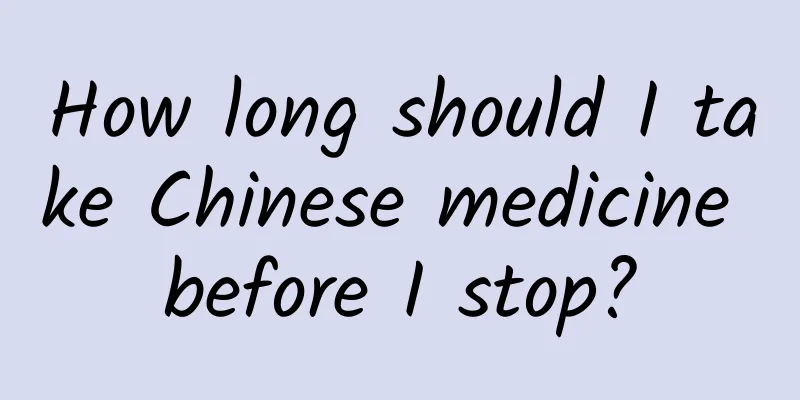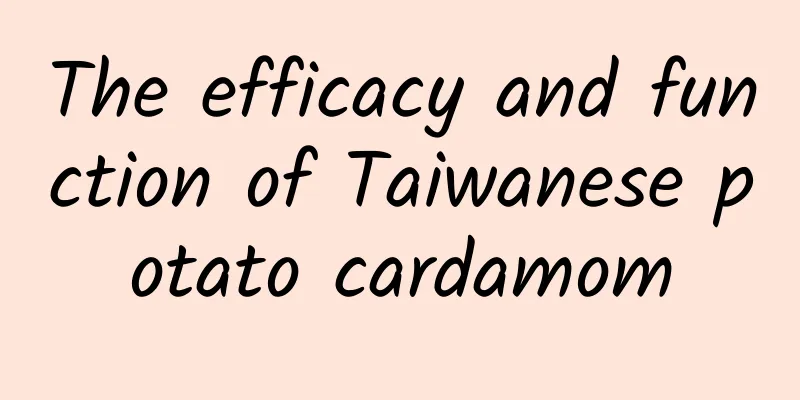How long should I take Chinese medicine before I stop?

|
There are many ways to treat diseases. Western medicine can treat them, and Chinese medicine can also treat them. Some diseases are better treated by Chinese medicine, so some people usually choose Chinese medicine to treat them when they feel unwell. Chinese medicine has fewer side effects on the body, but medicine is three-point poison. The same is true for taking Chinese medicine to treat diseases. It cannot be taken for a long time. You need to drink it for a while and stop. How long should you take Chinese medicine before stopping? It is generally recommended to stop taking Chinese medicine for two days after taking it for two weeks, and stop taking it for about two weeks after taking it for three months. Traditional Chinese medicine has definite clinical efficacy. Some medicines that are both medicine and food can actually be taken for a long time without having to stop. However, other types of drugs, especially those that soothe the liver and regulate qi, and those that act as diuretics, reduce swelling, and moisturize the intestines and promote bowel movements, are now increasingly shown in pharmacological experiments and clinical settings to cause certain damage to the liver, kidneys, and rectum, such as Polygonum multiflorum, Akebia trifoliata, and Cannabis sativa seed. Therefore, it is recommended that if you take this type of Chinese medicine, you can rest for two to seven days after every two weeks or so, to allow the liver and kidneys to fully metabolize the medicine and rest. If used to treat chronic diseases, it is recommended that you stop taking the medicine for two weeks after about three months, and perform liver and kidney function tests to avoid side effects of the medicine. Precautions for taking Chinese medicine 1. It is best to take Chinese medicine 30-60 minutes after a meal. It can avoid the stimulation of gastric mucosa by Chinese herbal ingredients. 2. It is best not to drink tea, coffee, milk or soy milk about one hour before and after taking Chinese medicine, so as to avoid chemical reactions between the Chinese medicine ingredients and the tannins, caffeine and proteins in the tea, which may affect the efficacy. You can drink water. 3. If you feel uncomfortable or have diarrhea after taking Chinese medicine, please contact us in time. Please stop taking the medicine if you have a cold or cough. 4. If you feel the taste is bitter, you can add some sugar before taking it. Generally, Chinese medicine should be taken warm. After decocting, let it sit for a while and take it when it is neither hot nor cold, such as mild tonic medicines. All medicines for colds and flu should be taken while hot to achieve the purpose of sweating; the same applies to medicines for dispelling cold and activating blood circulation, so as to dispel cold and promote blood circulation. Taboos of taking Chinese medicine 1. During the period of taking Chinese medicine, you cannot eat any fishy food, such as seafood such as fish, shrimp, crab, and mutton and other fishy foods, because these foods contain foreign proteins, which will dissipate the efficacy of the medicine and easily cause side effects such as allergies. 2. While taking Chinese medicine, you cannot drink strong tea, because strong tea contains more tannic acid, which will reduce the efficacy of Chinese medicine. It is particularly important to note that many people have the habit of eating donkey-hide gelatin and white fungus, which are also traditional Chinese medicines. Taking them with strong tea will hinder the body's absorption of their effective ingredients. If the patient has the habit of drinking tea, it is recommended to drink tea 2 to 3 hours after taking Chinese medicine. 3. While taking Chinese medicine, you should not eat raw, cold, greasy or spicy food. This is because raw and cold food will affect the stomach and intestines' absorption of the medicine, and is not conducive to nourishing the stomach and spleen; greasy food can easily cause slippery intestines and stagnation of gas, which is not conducive to the absorption of the medicine; spicy food can easily produce phlegm and irritate the stomach and intestines. It should be noted that spicy food is not just very hot and numbing food, but also includes hot ingredients such as onions, ginger, garlic, and pepper. 4. You cannot eat radish while taking Chinese medicine, as it can easily reduce the efficacy of the medicine and prevent it from having a therapeutic effect. However, this depends on the type of Chinese medicine you take. |
<<: How to wash your hair with Eclipta prostrata
>>: Can Sophora flavescens be drunk directly in water?
Recommend
Major breakthrough! Musk announces first human brain chip implant
There is new news about Musk’s brain-computer int...
Why did Emperor Wen of Han want to be alone in Bailuyuan?
On the morning of December 14, the State Administ...
Technology Morning News | Research shows drinking more coffee can prevent Alzheimer's disease
【Today’s cover】 Qilin Gorge is located in Qiongzi...
What are the medicinal values of four-leaf ginseng?
Four-leaf ginseng is a common medicinal herb in o...
What is the dosage of licorice root?
Licorice is a very common Chinese medicinal mater...
The efficacy and function of beech leaves
Traditional Chinese medicine culture is profound ...
The efficacy and function of toad leaves, don't worry about spring cough
Toad leaf is a very common Chinese medicinal mate...
The efficacy and function of Jianlan leaves
The traditional Chinese medicine Jianlan leaves a...
A comprehensive inventory of model hard-working animals, dung beetles are on the list?
Today is the third day of the May Day holiday. Wh...
How to promote children's growth? These exercises can help!
The height of children is a problem that many par...
Is "Ice Silk" bedding a "tax on IQ"? How should bedding be selected?
gossip "Ice silk fabric is a tax on IQ?"...
The efficacy and function of Yue Wang Yu Suan
Yuewang Yusuan is a very common medicinal materia...
Tmall Double 11 Alipay recharge nearly paralyzed 2 banks
On November 7, Tmall reported that the day after ...
Does mugwort have any effect on pregnant women?
Pregnancy is a special period in a woman's li...









